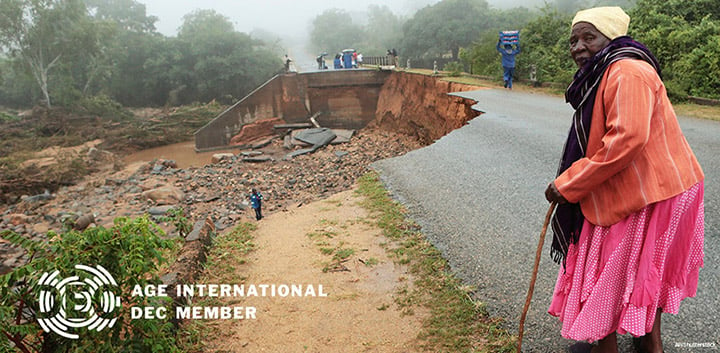DEC Cyclone Idai
Published on 27 March 2019 11:06 AM

What happened?
- On 15 March 2019 a tropical cyclone hit three very poor countries in Africa: Mozambique, Malawi and Zimbabwe
- The next 48 hours are critical
- At least 2.6 million people are effected Hundreds of thousands of lives are at risk 100s have died and the death toll is rising rapidly.
- Many people are missing – suspected of being buried in mud slides
- Beira - Mozambique’s fourth largest city with over 500,000 inhabitants – is ‘90% destroyed’ by the storm. It is totally without electricity and communication.
- Several villages in Mozambique have been cut off from the mainland by a tidal surge.
- The Government of Malawi have declared a ‘state of disaster’.
- Thousands are homeless. In Malwi houses have collapsed – leaving people living the schools, churches and camps.
- Agricultural fields have been destroyed, livestock washed away.
- There is a desperate need for food, clean water, and shelter.
- The scale of the crisis continues to unfold and deepen as heavy rains and floods continue.
- More aid is urgently needed
- Vulnerable older people risk being left behind and forgotten
Age International is responding in:
- Malawi
- Mozamique
What we’re doing
- We are working with partners on the ground to target the most vulnerable and isolated people over the age of 60, who are suffering in the wake of the disaster.
- Our partners are currently in the process of reaching out to older people to confirm what items they most desperately need.
- We plan to provide:
- Solar lamps to help older people move around in the dark
- Shelter materials and tools for older people living alone
- Emergency cash to help families buy food, medicines and other essentials
- Water purification kits to clean dirty water
- As always, we will champion the voices of older people on the ground and make sure that other aid agencies can provide for older people's special with specialist training, support and advice.
Older people in emergencies
- Older people are particularly vulnerable during crises like this.
- They need specialist age-friendly aid, which Age International and partners are experts at providing.
- Our programmes focus on the inclusion of older people and people with disabilities.
- During a natural disaster like this, older people:
- Are more vulnerable to water-borne diseases like cholera – they desperately need clean water
- Can’t chew all kinds of food, or carry heavy aid packs, or open packs with arthritic fingers – they need food aid that is designed especially for them
- Are more vulnerable to the cold – they need mattresses to sleep on, shelter, blankets
- Might have mobility problems and live in difficult to reach rural locations – they need aid to come to them
- Most have geriatric medical conditions that require specialist medicines
- After lives have been saved, older people need to be included in the efforts to rebuild – making sure that they have sturdy homes and suitable ways to earn a living.
